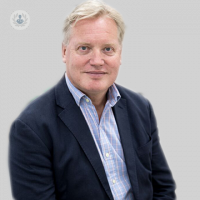What are the reasons to have rhinoplasty?
Written by:There are many different types of rhinoplasty operations. Rhinoplasty can be performed either for aesthetic reshaping or reconstructive reasons.
Most commonly, for aesthetic reasons, a person does not like the external shape of their nose. Some people wish to adjust the ‘ethnic’ shape of their nose. Rhinoplasty surgery can address various aspects of nasal form and function including the size and shape of the nose, size and shape of the nostrils or tip, the relationship between the nose and the upper lip and deviation of the nasal bridge as well as any breathing difficulties.
The harmony in profile between the nose and the chin is also very important. In a few people, it is necessary to consider modifying the profile of the chin too.
Reconstructive rhinoplasty operations are often performed to improve the airflow inside the nose, or to reconstruct missing parts of the nose either following the removal of tumours, following accidents or due to congenital problems.

What happens during a consultation for nose surgery?
After appropriate consultation about the relevant concerns, the nose will be examined externally and internally by gently widening the nostrils, after which the correct operation can be planned for each person. Photographs can be taken to allow specialist computer manipulation of photographs to help in planning the type of rhinoplasty.
Am I a good candidate for rhinoplasty?
People with a clear idea of what they dislike about their nose and who have not had previous surgery are generally good candidates for rhinoplasty. Secondary (repairing) rhinoplasty surgery is more complex due to previous scarring and the results are less predictable.
What surgical techniques do you recommend for me?
Rhinoplasty surgery can be performed by closed approaches where all the cuts are made inside the nose or by open approaches where an additional small cut is made in the skin that runs from the lip towards the tip of the nose. In general, more complex surgery, surgery on the nasal tip and secondary rhinoplasty, are more likely to require an open approach.
Is rhinoplasty surgery painful?
Most people do not find rhinoplasty surgery painful. Usually, an external splint/cast is placed on the nose for 1-2 weeks and this can be a bit itchy.
When should I see the results of the procedure?
Overall changes are evident immediately after the splint/cast is removed. However, changes will continue to occur for up to a year afterwards as swelling continues to settle and these changes are usually for the better.
If you're considering nose surgery, do not hesitate to book a consultation with one of our specialists.



